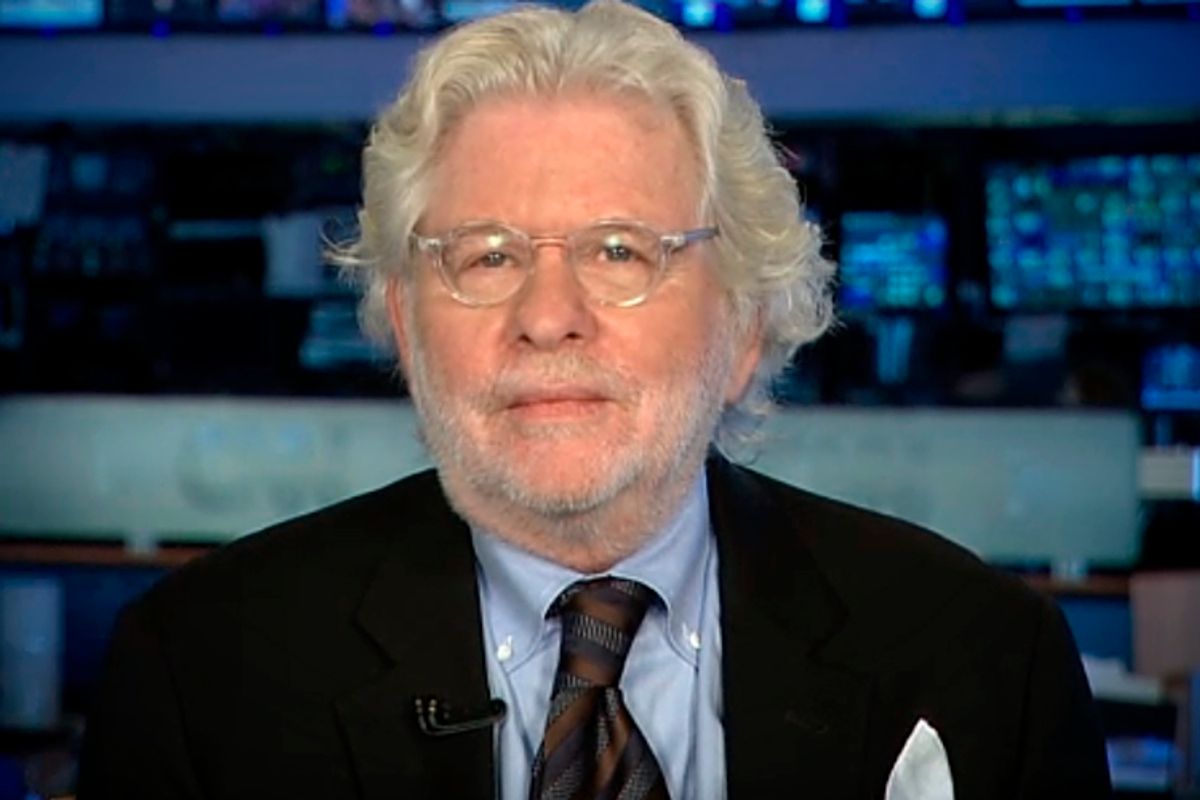Richard Cohen has finally -- finally! -- weighed in on Justin Bieber. Where to start with this amazing piece of commentary? There is the fact that the blog post, as originally published, misspelled Justin Bieber's name three times. There is the fact that the post repeatedly cites a New York Review of Books article that does not make the argument that Cohen claims it makes. There is the fact that Washington Post columnist Richard Cohen ends the post by telling international pop superstar Justin Bieber that neither he nor drugs is "cool."
So. Richard Cohen saw, on the news, that famous young person Justin Bieber threw eggs and raced his car. He also saw on the news that famous young person Justin Bieber is known to "smoke doobies," sometimes on airplanes. Some people may ascribe Bieber's recent behavior to the pressures and significant privileges of immense wealth and fame, bestowed on an adolescent. Cohen, though, recognizes in Bieber the telltale signs of marijuana abuse.
Don't just ask him! Ask the super-smart scientist author of this article that Cohen read!
On the off chance that he is not already a subscriber, I urge Justin Bieber to take a look at the current issue of the New York Review of Books. There, in addition to an article about his fellow musician, Johann Sebastian Bach, is one about marijuana. It was written by the eminent Jerome Groopman of the Harvard Medical School who says, basically, that marijuana is not a benign drug. Smoke it at your own risk.
This disquieting news about the weed that for so long has been considered a drug without consequencs [sic] is supported by 19 footnotes from such tomes as the Journal of Ethno-pharmacology and comes from a man who has studied marijuana and its effects in his very own laboratory. Citing the scientific literature and with his own findings in mind, Groopman can tell you what you might not want to hear: Richard Nixon may have been right.
The NYRB piece does indeed contain a multitude of footnotes, but it is not actually a dire warning of the negative effects of marijuana. It is mainly a summary of research into marijuana's medical uses and possible side effects, and it comes to the non-conclusion that "as more studies are conducted on marijuana for medical or recreational uses, opponents and enthusiasts may both discover that they were neither entirely right nor entirely wrong." Among the worst consequences of marijuana use mentioned in the piece is that it can be a factor in automobile accidents (simple solution: ban cars). Of the commonly cited connection between youthful marijuana use and the development of schizophrenia, Groopman says studies "may suggest an association but in no way prove a causal link."
Cohen:
Groopman is not arguing that marijuana should not be legalized, which is certainly the trend. He is merely saying, in the customarily cautious way of a cautious scientist, that the drug many of us considered an innocent diversion may be anything but. It is linked to certain kinds of behavior — the DSM has an entry for “cannabis use disorder — and can be particularly pernicious when it comes to young people. It has a big effect on their little brains.
Groopman's explanation of "cannabis use disorder":
The American Psychiatric Association, in the new DSM-5, has defined a diagnosis of “cannabis use disorder.” These people had a repeated pattern of use with harmful consequences, such as inability to fulfill major responsibilities at work and persistent social problems at home. Both the DSM-5 and the World Health Organization’s International Classification of Diseases 10th edition (ICD-10) also include a list of possible symptoms of withdrawal from using cannabis: significant fatigue, sleepiness, psychomotor retardation, anxiety, and depression.
The DSM-5 also contains diagnoses for "caffeine intoxication" ("Restlessness, nervousness, excitement, red face, gastrointestinal upset, muscle twitching, rambling speech, sleeplessness, rapid and irregular heartbeat") and "caffeine withdrawal" ("headache, fatigue, difficulty concentrating, depressed mood and other issues"). The DSM contains a lot of conditions.
In other words: Richard Nixon was right. Justin Bieber is a conspiracy perpetrated by untrustworthy, back-stabbing Jews is a dangerous dope fiend.
Of course, it wouldn't be a terrible anti-pot piece by a boomer hack with a newspaper sinecure without a paragraph in which the author announces that it was different when he got high because The Sixties.
I know without checking that I have written columns over the years demanding the legalization of marijuana. I certainly confessed to having “experimented” with the stuff but found it not to my liking. Still, I was of the generation for which it was a rite of passage, apiece with sexual freedom and, much more importantly, civil rights and the anti-war movement. Old fogies warned about pot, J. Edgar Hoover hated it and Richard Nixon made war against — three good reasons right there to have a toke.
Pot was OK in The Sixties because "it was a rite of passage" and because "old fogies warned about" it. And obviously neither of those things are true anymore, because now Cohen himself is old and therefore pot is bad and young people should not use it.
Justin, m’boy, you’ve got a habit or maybe just a strong indulgence, but whatever it is, the consequences are plain. Not to put too fine a point on it, you’ve been acting like a jerk. Maybe you ought to lay off the weed. Look at it this way: If it’s legal and everyone’s doing it, then it’s no longer cool. And neither are you.
Yes, for Justin Bieber, the consequences of marijuana abuse are plain as day: He is unimaginably wealthy and beloved by millions and will emerge from his recent legal troubles just as rich and famous as ever. But Richard Cohen does not think he is cool. Stay off the weed, kids.



Shares